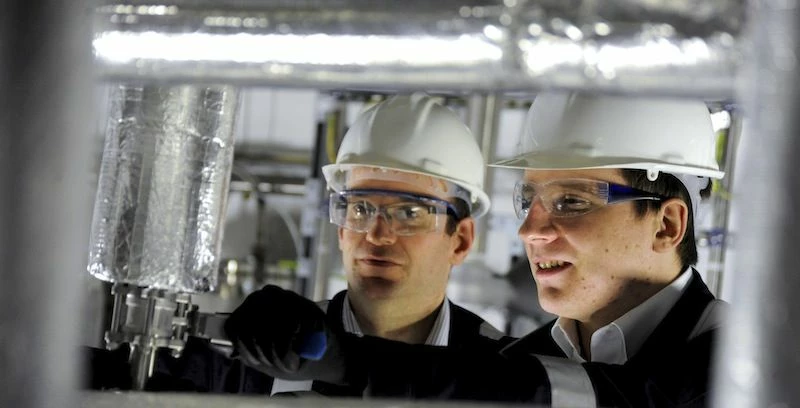
Partner Article
Teesside graduate helps Plaxica save time and money
A technology and licensing company is able to save time and money on piloting and testing new manufacturing processes thanks to a software application developed with the help of Teesside University.
Plaxica, which has a pilot plant at the Wilton Centre in Redcar, has used Aspentech software to construct a program which allows the company to simulate how different operating conditions affect the manufacturing process.
Plaxica develops next generation biopolymers, particularly polylactic acid (PLA), from renewable resources.
The process simulation program has the potential to save the company large amounts of money and time by increasing efficiency and avoiding costly outlay on piloting equipment. It was developed with the help of a Knowledge Exchange Internship, a specialist graduate programme for business run by Teesside University.
Knowledge Exchange Internships (KEIs) are unique to Teesside University. They are designed to help companies solve challenging problems or implement specific projects by recruiting a talented graduate, with financial support, for up to 12 months.
The graduates are able to draw upon the expertise of staff at the University to help them in their work.
David Gibney, a Cambridge University Chemical Engineering graduate, had a key role in creating and setting up the Aspentech software, which is typically used in process engineering settings.
He said: “The simulation allows Plaxica to test process modifications prior to implementation on the pilot plant.
“The pilot plant is configured to only run at a small scale, but using the simulation you can estimate process variables at world scale.
“As we gain more confidence in the pilot plant, and the data it produces to validate the model, we are able to deviate from standard operating conditions to optimise the process.”
Andrew Langton, a Senior Process Engineer at Plaxica, added: “The model is able to prove to potential clients and investors that the process is viable and capable at commercial scales.
“It’s also now part of our knowledge base and can be used for other projects.
“The output from the model will also be used to show potential clients how the process could be configured for their particular requirements.
“As an SME we have a limited research budget, and the KEI enabled us to access relevant expertise.
“We knew that we wanted to recruit a graduate, and the KEI helped to fund that and also gave us the academic support with the University which was fantastic.”
Dr Samantha Gooneratne, Lecturer in Chemical Engineering, who supervised the internship, said: “Teesside prides itself as a business-facing University that is able to work with companies and look at ways in which we can help them to succeed.
“This was a very interesting project, and we are delighted that the KEI has been able to provide Plaxica with the research expertise to help the company identify ways to operate more efficiently.”
This was posted in Bdaily's Members' News section by Teesside University .
Enjoy the read? Get Bdaily delivered.
Sign up to receive our daily bulletin, sent to your inbox, for free.








 Navigating the messy middle of business growth
Navigating the messy middle of business growth
 We must make it easier to hire young people
We must make it easier to hire young people
 Why community-based care is key to NHS' future
Why community-based care is key to NHS' future
 Culture, confidence and creativity in the North East
Culture, confidence and creativity in the North East
 Putting in the groundwork to boost skills
Putting in the groundwork to boost skills
 £100,000 milestone drives forward STEM work
£100,000 milestone drives forward STEM work
 Restoring confidence for the economic road ahead
Restoring confidence for the economic road ahead
 Ready to scale? Buy-and-build offers opportunity
Ready to scale? Buy-and-build offers opportunity
 When will our regional economy grow?
When will our regional economy grow?
 Creating a thriving North East construction sector
Creating a thriving North East construction sector
 Why investors are still backing the North East
Why investors are still backing the North East
 Time to stop risking Britain’s family businesses
Time to stop risking Britain’s family businesses